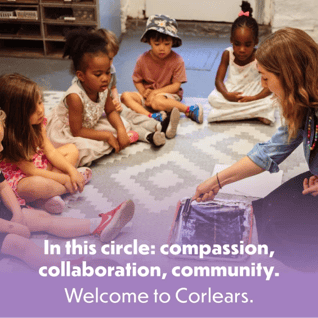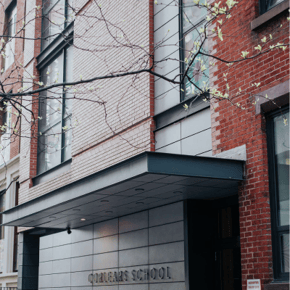Corlears School is preparing to welcome a flock of ducklings this month, thanks to the diligent and thoughtful care of our first- and second-graders.
In the spring, the 6- and 7-year-olds study life cycles and embryology by carefully incubating, caring for, and observing real duck eggs over several weeks until they hatch.
In preparation for the egg delivery, the classes discussed what they knew about the birds and their hatchlings, and recorded the questions they were most curious to have answered.
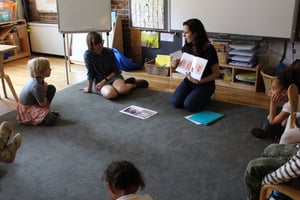
Then, throughout the month of May, students continue to study ducks, their habitats, the structure of eggs, and embryo development. Each student has an opportunity to turn the eggs in the incubator, and to monitor the temperature and moisture levels inside it. Teachers help students record growth by candling the eggs, a process of shining a special light through the shell to observe the embryos’ development.
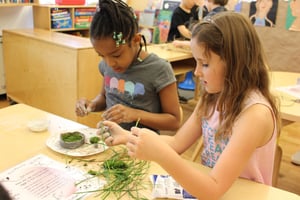
Then, once the ducklings hatch, students will say goodbye to their feathered friends and they’ll be returned to the upstate New York farm where they were laid.
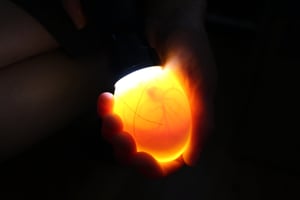
6/7s teachers show students how to candle eggs, and how shining a special light through the eggshell gives us a better idea of how the duckling is developing.
For teachers, the embryology study is a highlight of the school year because it teaches so many valuable lessons, like “learning to take care of something that is completely reliant on you, and working together (as quietly and steadily as possible) so they hatch properly,” explains Chelsea Coussens, a 6/7s Co-Head Teacher.
Throughout all years at Corlears, students are encouraged to be inquisitive – but also to work through some of the more emotional complexities associated with life. In this study, for example, there’s always a chance an egg or two won’t make it through to hatching, despite all the care and effort – and that’s part of the lesson, too.
“That aspect of the process feels valuable – that a life cycle also includes times when things don’t make it,” Coussens explains. The discussions around this occurrence are really dependent upon the group of students. It may start off scientific (i.e. this is a natural occurrence and why ducks often lay so many eggs), and transition into something deeper.
“We’ll talk about feelings around loss, and support where they are, leaving space for questions and feelings. It’s a really great time to build empathy and understanding about the difference experiences around (the loss),” Coussens says.
The study speaks to the larger philosophy and curriculum reinforced throughout Corlears.
“It’s an amazing study because they are sponges for facts and knowledge,” Coussens says of the students. “To get this window into something that is so big and to have a really authentic place to ask their questions about what is happening really gets to the heart of so much. It’s a scientific lens to talk about bigger picture things.”
